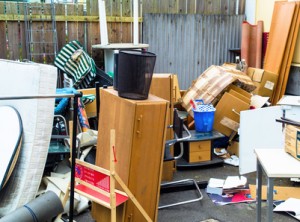Tenant Surprises: Dealing With a Hoarder!
 Admin
Admin
Published Date: 2014-03-14

Really it is never a dull day when it comes to dealing with tenants. As a property manager the more information we can give tenants and the easier we make it for tenants to follow our guidelines the better. But there are always days when we discover and tenant might have a different living standards than you expected and now what do you do?
Property Problems: Dealing With a Hoarder
Typical landlord worries include late payments, loud tenants and busy schedules. These concerns come with the territory, and most landlords have the experience
and know-how to keep their properties running smoothly. An unsavory new trend has landlords wondering whether some tenants will ever leave. Hoarding is a behavior pattern that leads people to accumulate excess material things without any inclination to get rid of old things. This behavior has been in the spotlight ever since the A&E reality show "Hoarders" began documenting extreme cases of compulsive hoarding. Manage a high-volume property for long enough and you will probably have to confront this uncomfortable behavior.
Drafting the Lease
Most lease agreements contain clauses that state tenants must keep apartments and houses in fair condition. Hoarding may lead to the obstruction of exits and passageways, or it may establish unsanitary conditions. Hoarders push the limits of these clauses, and it's time for landlords to get more clear. Excessive hoarding, which is a subjective term, is a safety risk and often leads to structural and pest control issues. If hoarding is becoming a pressing problem in your property, include a specific hoarding clause in the lease. By mentioning hoarding by name, tenants will know that they don't have the right to accumulate excessive junk in their rented homes. A hoarding clause will give you a stronger leg to stand on when you confront pack-rat tenants.
Confronting a Hoarder
At some point you may have to confront a tenant who hoards, no matter what the lease says. Before you knock on the door, investigate the property as much as possible. An alleged case of hoarding could be a tenant reorganizing a storage unit or packing for a trip. As you confront a tenant, ask about the potential hoarding and remind them that excessive storage may violate some of the lease terms. Most cases of hoarding are the result of laziness, and tenants are willing to clean up the mess. San Francisco requires landlords to give 30 days for cleaning before they are allowed to evict tenants because of unreasonable conditions. If your tenants don't see the problem with their habits, explain that hoarding violates code and puts residents in danger. Last December, fire officials in Washington D.C. found hoarding conditions when they responded to a house fire, according to NBCWashington.com. They don't know what started the fire, but hoarding made it more difficult for fireman to assess the damage and clean up. A clean up plan and perhaps a dumpster from a local D.C. provider could have helped the homeowner dispose of unnecessary belongings and potentially prevented the fire. Hoarders who refuse to clean and insist on maintaining an unreasonable environment may have to be evicted. Explain the situation to your tenants before you pursue legal action. Some tenants need to feel some pressure in order to clean up their acts. If the threat of eviction doesn't cause hoarding tenants to shape up, it's time to pursue legal action. A lawyer will be able to confirm that you have grounds for eviction based on your lease, and state laws dictate how much time a tenant has to clear out.





